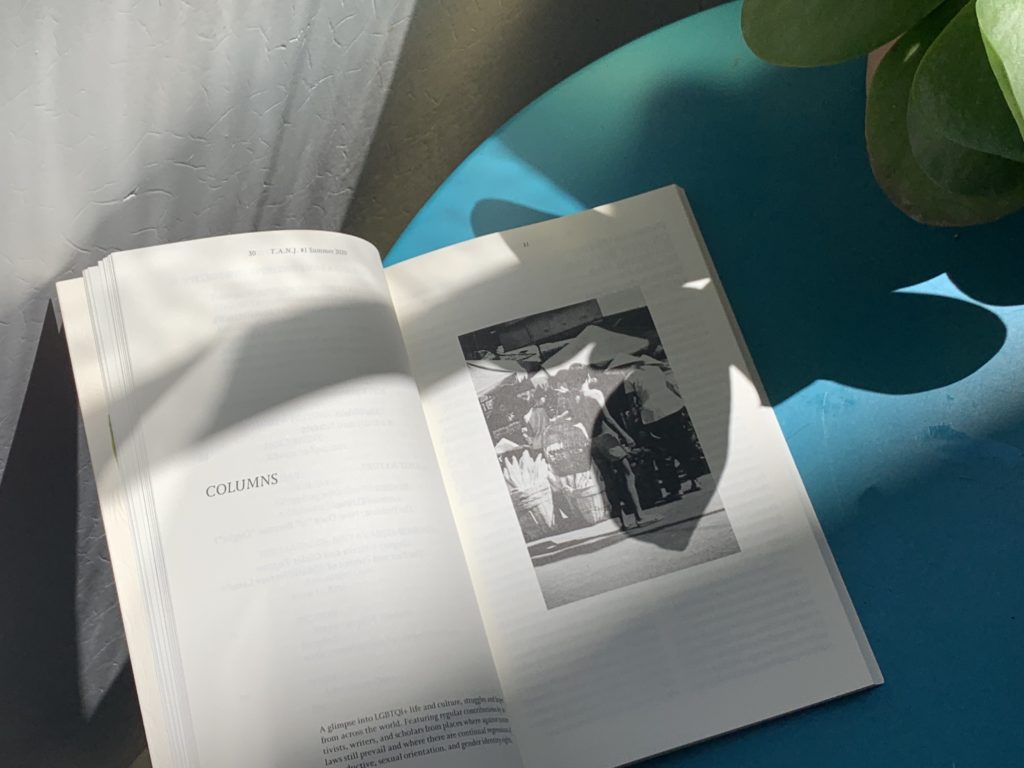A Church Coalition’s Rainbow-Inclusion Efforts in India

This text was one of the columns of The Against Nature Journal (T.A.N.J.) issue #1, published by Council in 2020.
Religion does not enthrall me, but its in influence on queer lives does affect me. As a queer activist working since the 1990s, I have come across people who have reconciled their religion’s diktats on sin, guilt, and shame with their gender or sexuality, HIV status, or occupation in sex work. There are others, though, who remain trapped in between. In search of better ways to help them, I became familiar with faith-based organizations (FBOs) in the mid-2000s in the context of the HIV epidemic. I was highly skeptical about their approach at first, suspecting a judgmental attitude rather than respect for human diversity.
However, in 2009, I came to know about an FBO called the National Council of Churches in India (NCCI), when they issued a statement in support of the High Court of Delhi’s decision to read down Section 377 of the Indian Penal Code, a British-era law that continued to criminalize queer people even after sixty-two years of Independence. NCCI, a forum of thirty-one Protestant and Orthodox churches across India, was one of the few FBOs willing to revisit their stance on non-normative genders and sexualities, and seemingly even at the cost of upsetting member churches. Given that Section 377 was a “great religious uni er,” NCCI also put themselves at risk of unshielded criticism from non-Christian organizations.
In 2016, when I attended an NCCI conference of church leaders, theologians, and queer activists at the United Theological College in Bangalore, I further learned that NCCI’s ESHA program had convened workshops on human sexuality for church leaders as early as 2001, engaging queer Christians as advocates. In their centennial year of 2014, NCCI set up the National Ecumenical Forum for Gender and Sexual Diversities. They also drafted a course on human sexuality for graduate students of theology. This was rather courageous since the Supreme Court of India had just turned back the clock to reinstate Section 377—though they eventually read it down again, and irreversibly, in 2018.
NCCI now aims to transform the Ecumenical Forum into an autonomous institute for gender, sexuality, and religious equality, and to move beyond individual programs like ESHA to make NCCI’s entire organizational policy queer inclusive. NCCI’s efforts are thought-provoking. Hinduism as a faith and amalgam of cultures already embodies several examples of queerness. It also claims to have no queerphobic strictures comparable to those supposedly prescribed in Judeo-Christian religions. But I fear that this openness is being appropriated by queer Hindutva proponents as an unsubstantiated claim of cultural superiority, where literary research shows that queerness has a positive space in other religions as well.
I hope that NCCI’s credibility as a queer-friendly FBO grows. Simultaneously, I look for greater nuance in their work. They have published a considerable amount of literature to question the belief that the Bible condemns homo- sexuality as a sin. Yet, some of these texts only seem to accept queer people contingent on same-sex marriage. What about single queer people?
If a kinder and more just practice of religion is possible, one that overcomes the literal adherence to scriptural divination, then a queer studies circle piloted in 2019 by Bishop’s College, a Kolkata-based NCCI affiliate, comes to mind. The circle aimed to facilitate friendship between “faculty and students of theology” and “queer persons.” Such an initiative might better address the post-decriminalization need for an anti-discrimination ethos and drive home the message that “homophobia is un-Christian.”
Pawan Dhall has been engaged with queer activism in India since the 1990s.
He runs Varta Trust, Kolkata, a nonprofit for gender and sexuality issues. He researches and writes on the histories, health, and socioeconomic inclusion concerns of queer communities. His most recent publication is Out of Line and Offline: Queer Mobilizations in ’90s Eastern India (Seagull Books, 2020).
TEXT BY
Pawan Dhall
This text was part of The Against Nature Journal (T.A.N.J.) issue #1, published by Council in 2020.
Top image : T.A.N.J #1, Columns, 2020, Council.
T.A.N.J. #1
Articles
Thinking Through Religion
— Aimar Arriola
How to Binj
— Amatesiro Dore
A queer ‘we’?
— Linn Marie Tonstad
Columns
Pride in Jesus Church Service: Bridging the Divide in Barbados and the Caribbean
— Donnya Piggott
Antigender Agendas as Colonial Reestablishments in Brazil and Abya Yala
— Viviane Vergueiro
A Church Coalition’s Rainbow-Inclusion Efforts in India
— Pawan Dhall
The Trial of Kenya’s LGBT Community in the Court of Public Opinion
— Kari Mugo
LGBTQI of the Lebanese Revolution Don’t Need Permission
— Dayna Ash
Of Islamic Laws and the Colonial Past: The Conundrums Faced by the Malaysian LGBT Community
— Niza
Love in the Time of Corona
— Naoufal Bouzid
A Trojan Horse for Warsaw’s Castle
— Eliel Jones
Events
แปร่ง // praeng
– a project by Wirunwan Victoria Pitaktong & Jeanne Penjan Lassus, Bangkok, 2020
Introducing T.A.N.J #1
– online conversation with Vivek Divan, Kari Mugo, Linn Marie Tonstad & the editors